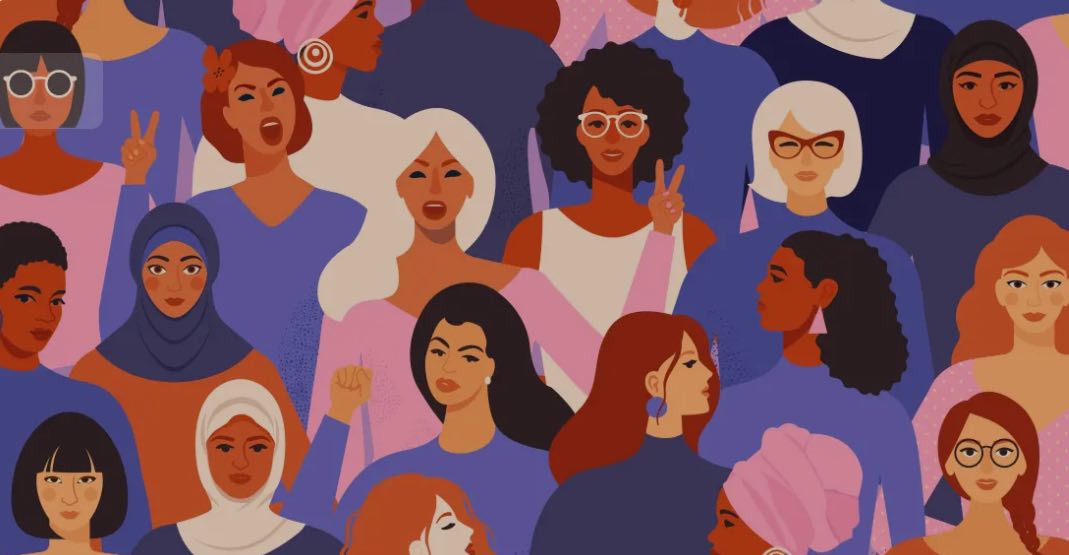Women in the Elections of Iran and America
Women in the Elections of Iran and America
Dr. Hossein Dehshiar, a professor of international relations at the Faculty of Law and Political Science at Allameh Tabataba’i University, in a valuable book titled ‘The Theoretical and Practical Nature of the U.S. Electoral System,’ examines and analyzes the unique system of the U.S. presidential elections, which is an unparalleled resource in this field for the disciplines of law and political science.
However, a note he wrote in 2004 about the possibility of Condoleezza Rice, the National Security Advisor and then Secretary of State under George W. Bush, becoming president, caused a stir in the Shargh newspaper.
Dehshiar predicted that because Rice is a black woman and unattractive, she could never attain the highest office in the United States. Regardless of how sensitive these words might be, this speculation has so far proven accurate.
Donald Trump defeated two women in the 2016 and 2020 elections, who, although from the same party, had different appearances, personalities, and backgrounds.
This result showed that even in the most modern countries of the world, the view of women remains traditional.
A look at the past sixty years of Iran’s history shows how sensitive the entry of women into the electoral arena has been.
On January 26, 1963, during the referendum known as the White Revolution, women were given the right to vote for the first time.
Before this date, according to Article 10 of the electoral law, women, along with the insane and bankrupt by fault, were deprived of the right to vote. With the victory of the Islamic Revolution in 1979 and the widespread participation of women in the referendum on March 30 and 31, 1979, a ‘yes’ vote led to the establishment of the Islamic Republic of Iran.
Although one woman, Monireh Gorji-Fard, was present in the Assembly for the Final Review of the Constitution of the Islamic Republic of Iran, and women, as voters, have the right to vote in the four elections for the Assembly of Experts, the Presidency, the Islamic Consultative Assembly, and councils, they have not had an approved candidate for the right to be elected in the two elections for the Assembly of Experts and the Presidency to this day.
The ambiguous term ‘Rejal’ (statesmen) in Article 113 of the Constitution and the Guardian Council’s failure to define this word in the resolution defining the criteria and necessary conditions for determining the political, religious, managerial, and prudent qualifications of presidential candidates in 2021, despite being tasked with this duty in the tenth clause of the general election policies issued in 2016, shows that the issue of women and elections has not been resolved even after sixty years of contention.
A recent example in this regard was the election of the Central Bar Association on October 11 of this year, where 4,999 valid votes were cast. Although about half of the lawyers are female, among the final list of candidates, after the review of qualifications and the withdrawal of some from the competition, only 18 women were seen, of which only one, Ms. Farideh Gheirat, was elected to the board as the seventh member.
Of course, the issue of presidential elections and the Bar Association has one important difference, which is that in the former, the principle of qualification approval is raised, and opposition to it is unacceptable, whereas in the latter, the issue is about electing individuals regardless of gender, although in practice it was seen that gender influenced the selection.
Some women are dissatisfied with their status in society. This situation can be attributed to four perspectives: first, the man-to-man perspective, where men have a sympathetic and approving view of each other; second, the man-to-woman perspective, which is traditionally top-down in most cases; third, the woman-to-man perspective, where women mostly accept and approve of men; and fourth, the woman-to-woman perspective, which unfortunately is not as sympathetic and approving as the man-to-man perspective.
Of the last three perspectives in which women are present, in two cases, the responsibility for choosing the approach lies with the women themselves.
The social developments of the past two years in Iran, and especially the events of last week, show that the issue of gender still plays a decisive role.
Since the author of this note is a man, it will be natural for a female reader to view this suggestion with suspicion and distrust. However, as the greats have said, what is important is the saying, not the speaker; the logic of the speech should always be considered.
Marzieh Vahid-Dastjerdi, the first female minister in the Islamic Republic of Iran, in response to the question of whether she agrees with women in ministerial positions, replied, ‘No, the greatest help to women comes from women themselves.’

